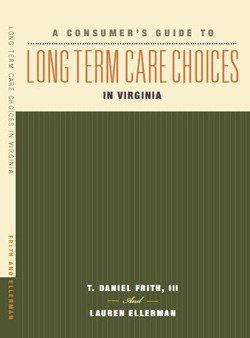 I watched the debate last night and assume many of you did as well.
I watched the debate last night and assume many of you did as well.
I was saddened (as I often am in politics) how little information was actually given about concrete plans to protect our citizens’ health care.
These days, the average nursing home (and I don’t mean the super nice ones with pools, spas, and state of the art equipment and care) costs between $5,000 and $8,000 a month. Medicare will currently pay for 100 days IF (and only if) rehabilitation is being given.
Medicaid will help defray the costs of long term care – but Medicaid only kicks in after your family has truly spent most of its money elsewhere – and private insurance will likely not pay a dime.
So, do you have a rainy day account set up for your long term care? Does it have a few hundred thousand just waiting to be spent at your local nursing home?
If a single year in an assisted living facility or nursing home costs more than $50,000 – the question on everyone’s mind should be, HOW AM I GOING TO PAY FOR THAT? How is my family going to pay for that? What choices do we have and how can we plan?
It reminds of an interesting advertisement this week in the Wall Street Journal titled, “Long Term Care Mythbusters,” written by a large national insurance company selling long term care insurance.
The source was skewed, as they were clearly selling a product, but the information contained in the ad was timely, true, and relevant to millions of Virginians. Most of us will need some kind of long term health care, and most of us are not in a position to pay cash. So planning must be done.
My office does not sell any kind of long term care insurance, but years ago we realized that sharing relevant information with our clients about planning for long term care, was too little, too late. By the time they came to us, the facility had already been chosen, the house sold, and the decisions made – and often in haste.
We realized we needed to share important information BEFORE folks call our office suspecting possible abuse or neglect.

So we wrote a free book, A Consumer’s Guide to Long Term Care in Virginia.
In our easy to read, free book, we address the following:
- when to start the conversation with family
- what legal documents you need in place
- how to pay for long term care
- difference between nursing home care, assisted living, etc.
- rights under state law for residents of nursing homes
We’ll send you a copy as a free resource.
To order, call our office manager, Mary Ann Spencer, at (540) 985-0098, or order online. It is better to plan and be prepared.
As the ad in the WSJ states, over 79% of Americans don’t know or underestimate what they will need to pay for long term care. In our experience, the other misconceptions are equally prevalent.
Perhaps the next debate will shock us all and our candidates will actually discuss details of these very important issues.
